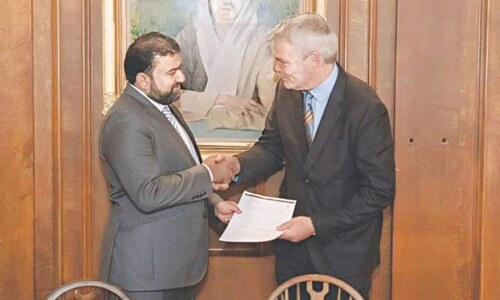LAST year, when a bench of the Allahabad High Court decided to partition the site where the demolished Babri Mosque once stood in the Indian town of Ayodhya, there was a feeling that perhaps the most divisive communal issue India has faced post-Partition had finally been put to rest. But this has not been the case. A two-judge bench of the Indian Supreme Court stayed last September’s verdict on Monday; one of the judges noted that none of the litigants had asked for the three-way partition and the high court came up with the solution itself. The verdict, which split the disputed site between two Hindu groups and a Muslim organisation, was termed a “strange order”. Justice Aftab Alam said that “the high court has granted a new relief, which nobody has asked for it”. Politically, the Supreme Court’s decision to maintain the status quo has received a mixed reception in India. The BJP, which sprang to national prominence after the destruction of the 16th-century mosque, is ecstatic. Many of its leaders were believed to be instrumental in instigating the rampage by Hindu zealots, which resulted in the demolition and that was followed by a bout of bloody communal violence. Other parties have also welcomed it, for different reasons, while the ruling Congress has largely kept quiet.
When the high court delivered its judgment many saw the site’s partition as the only workable solution in a supposedly secular set-up. Yet there were questions as to how the verdict would be implemented and more importantly, if it was within the court’s jurisdiction to come up with solutions, or to deliver a judgment based on the facts. Judges must decide cases on the basis of solid evidence and must ensure that justice is done, not keeping the goal — however noble — of communal harmony in mind. Promoting harmony and bringing religious or ethnic communities together to overcome thorny issues is the task of politicians and civil society, not the courts. One feels this chapter is far from closed and various parties — specifically those allied with the Sangh Parivar — will continue to milk the Babri Mosque dispute for political gain.








































Dear visitor, the comments section is undergoing an overhaul and will return soon.